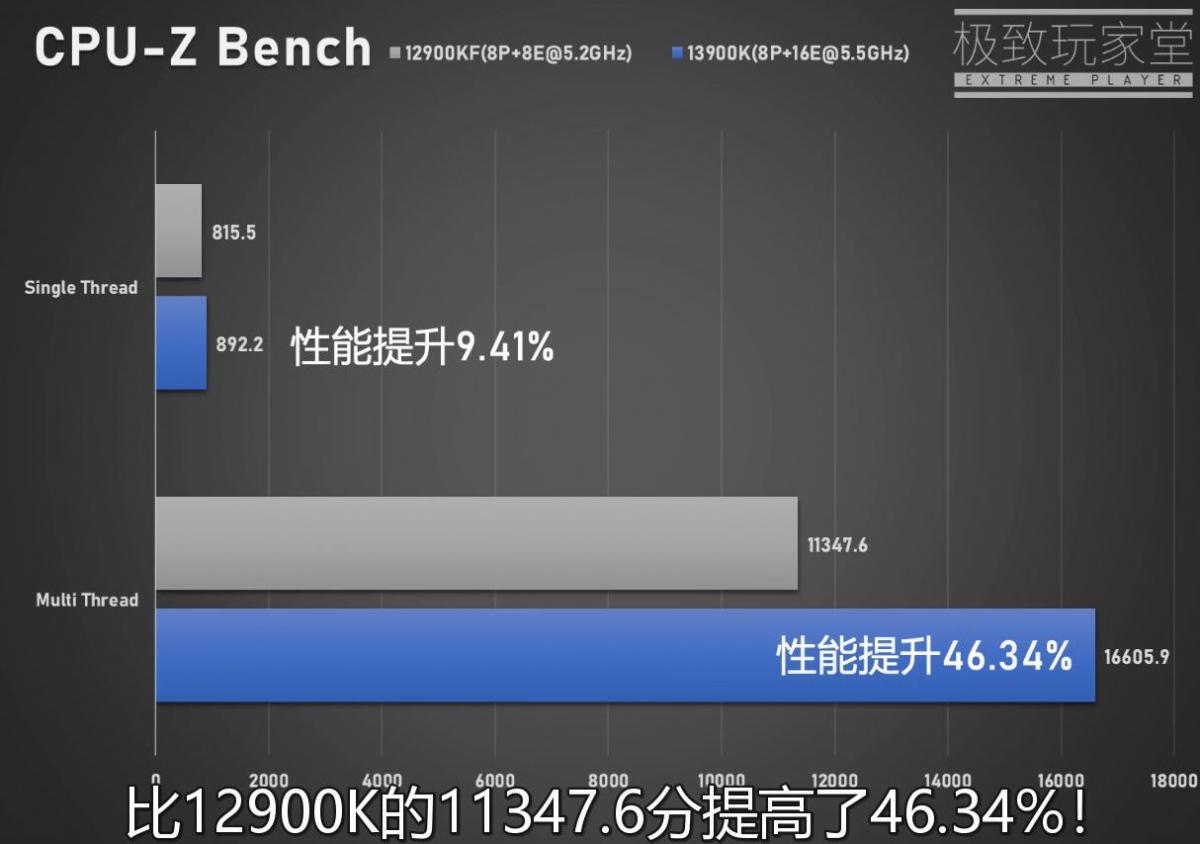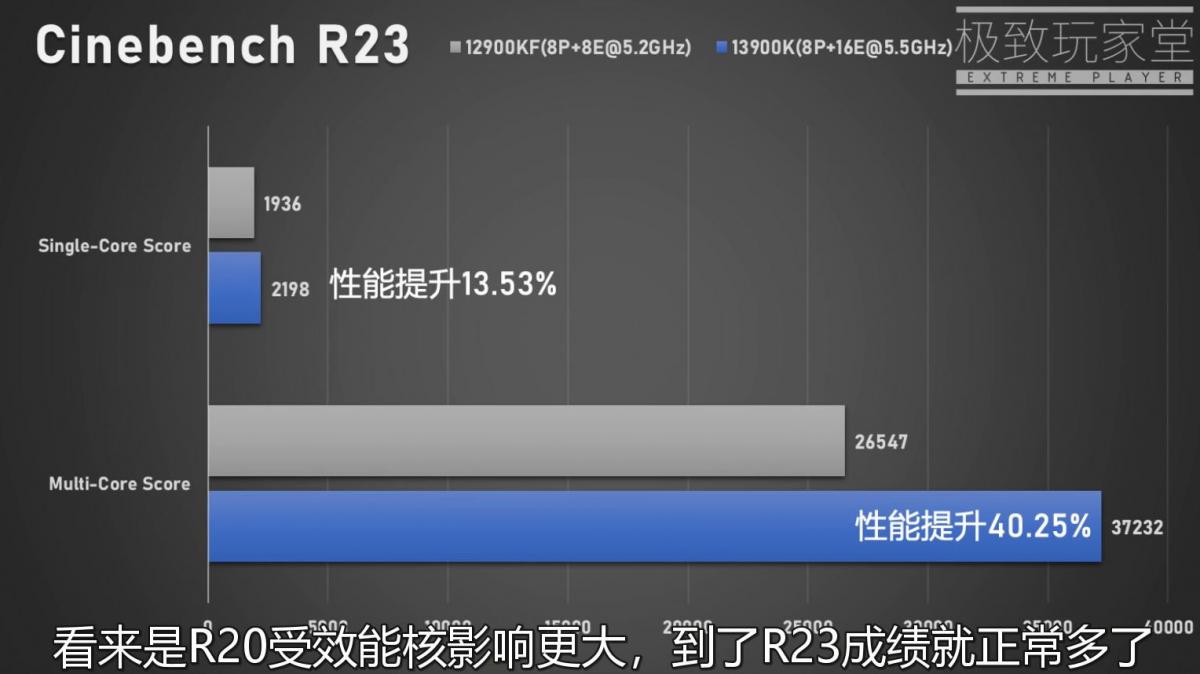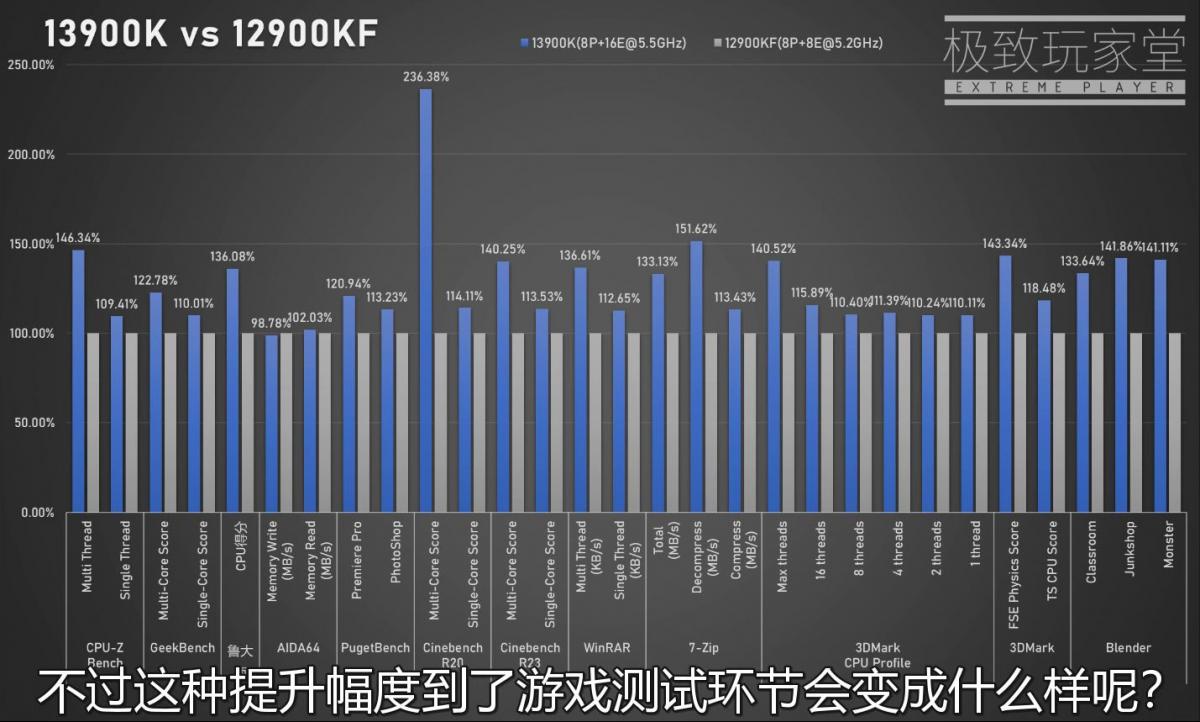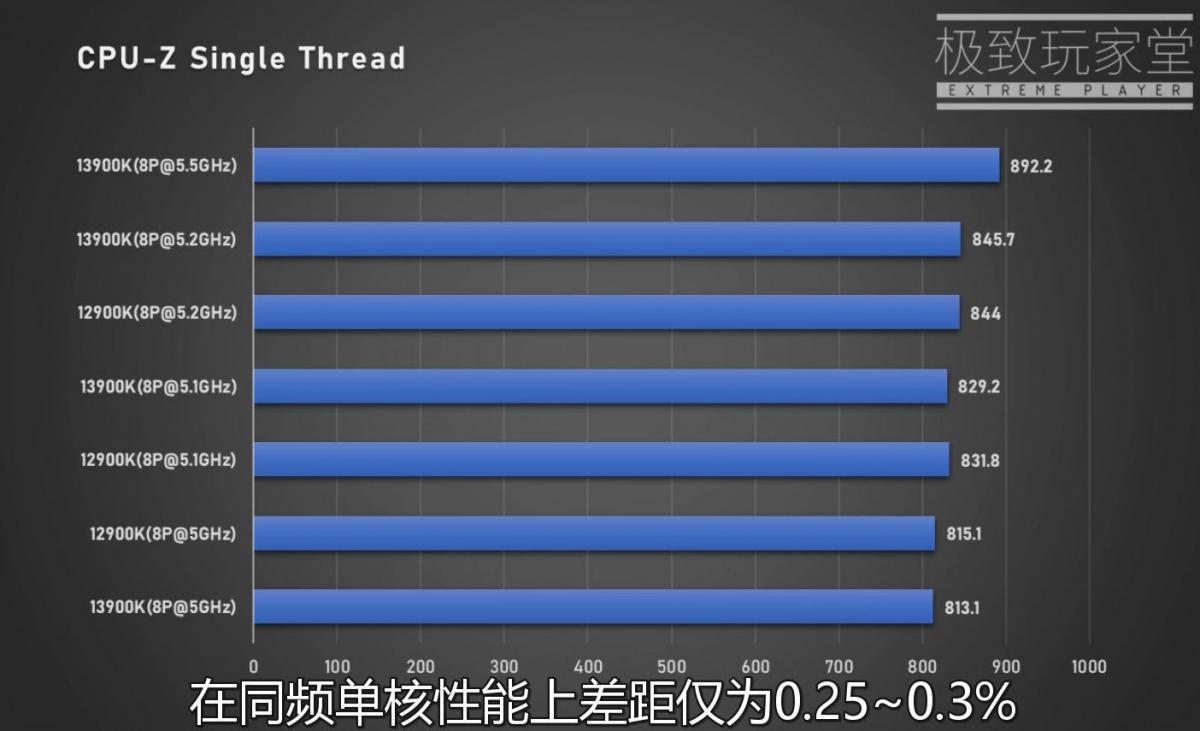Extreme Player, a Chinese PC enthusiast who has access to an engineering sample (ES) of the Core i9-13900K CPU, put it through a series of simulated tests and found that it performs better than the i9-12900K.
The results of the CPU-Z Bench single-core test show that it is 9.41 percent faster than the i9-12900K. The CPU has 36 MB of L3 cache and 32 MB of L2 cache, for a total of 68 MB, are carried by the CPU. It also has a TDP (PL1) of 125W and an Max TDP of around 250W. This chip looks to be operating at a frequency of 3.0 GHz with a boost to 5.5 GHz, but it also shows a boost of up to 5.7 GHz; thus, we may anticipate comparable speeds in the final product. The consumer processor is anticipated to feature a single core Boost of up to 5.75 GHz to 5.8 GHz.
Intel already claimed that the "Raptor Cove" performance cores are better than "Golden Cove" P-cores when it comes to improving IPC from one generation to the next. According to the reviewer, the 13900K is 10% quicker in single-core testing than the 12900KF and up to 35% faster in multi-threaded tasks. The results vary depending on the test, but Raptor Lake looks to be 46.34 percent faster in multi-core CPU-Z than Alder Lake CPU, but also 22 percent faster in Geekbench 5 MT. Raptor Lake's performance gain is mostly due to faster clocks. In the CPU-Z test, both CPUs tested at the same frequency get almost similar results. Despite utilizing a 360 AIO cooler, the 13900K hit 100°C peak temperature and started to throttle in Intel's XTU tool. Furthermore, the PL4 (package) power is said to have reached 420W.
Intel's 13th-generation Raptor Lake processors are anticipated to debut with the Z790 platform in October 2022. These CPUs will compete with AMD's Ryzen 7000 CPUs, which will be released around the same time.
Intel Raptor Lake ES is 9% faster in Single-Core Performance over Alder Lake






